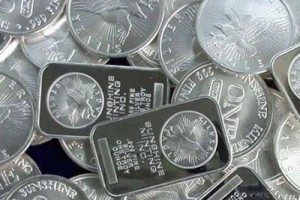Posted on 18 September 2014.
The Russian investments dropped in August more than expected and the growth of retail sales remains near its lowest level since 2010. The investments in fixed capital fell by 2.7% in August yoy compared to 2% drop in July, said Federal statistics. The economists had expected a contraction of 2%. Meanwhile, retail sales expanded by 1.4%, having increased by 1.2% revised upwards in July. The data cast further doubt on the ability of Russia to resist Western sanctions. Consumption, which was one of the drivers of economic recovery, shrink, while industrial production failed to account for growth in August for the first time in seven months.
Meanwhile, the ruble has depreciated by 14% against the USD so far this year. The Russian central bank responds by raising its key interest rate three times in 2014. The consumer activity is experiencing a slowdown in terms of slower wage growth and saturation of the consumer credit market. The central bank decided to leave its key interest rate unchanged at 8% last week. Institution predicts that the economy of the largest exporter of energy products in the world will expand by 0.4% in 2014 and between 0.9% and 1.1% in 2015.
The wages increased with 1.4% in August, taking into account the inflationary effect, while the unemployment rate fell to a record low of 4.8%, the statistics service announced.
Posted in Economy
Posted on 18 September 2014. Tags: Japan
The Japanese trade deficit decreased surprisingly in August after imports decreased at a faster pace compared to exports. The weaker commercial issue picture signals slower economic growth in the third quarter. On adjusted basis in August trade gap is decreased to 948.5 billion JPY (8.73 billion USD) compared to 964 billion JPY in July, according to the latest data from the Japanese Ministry of Finance. The figures were pleasantly surprised market participants, who predicted a deficit of 1.03 trillion JPY.
In August, exports fell by 1.3% yoy. The experts had expected a sharp decline of 2.6%. For comparison statistics in July rose by 3.9%. The imports decreased by 1.5% yoy. The figure disappointed analysts who thought The imports will decrease by less - 1.2%. In July, imports registered an increase of 2.3% yoy. The seasonally adjusted annual trade deficit narrowed to 924.2 billion YOU from 1.02 trillion JPY.
Data, although better than expected, is unlikely to do much to restore faith in the economy of Japan, which is trying to recover from the sharp drop in gross domestic product in the second quarter.
Posted in Economy

Posted on 18 September 2014.
 Silver reached lowest level in 4 years, after the contracts of the metal dropped in Thursday, although the Federal Reserve kept interest rates on Wednesday. The market remains focused on signals that the central bank of the United States sent the future of monetary policy overseas. As a result, the price of the December futures silver lowers to 0.97% to 18.553 USD per ounce - the lowest level since mid-July 2010. At the same time the most widely traded precious metals - gold, also depreciated sharply after the Fed meeting. The contracts on the yellow metal traded retreat from 0.96% to 1,224.00 USD per ounce. Level reached the lowest since December last year.
Silver reached lowest level in 4 years, after the contracts of the metal dropped in Thursday, although the Federal Reserve kept interest rates on Wednesday. The market remains focused on signals that the central bank of the United States sent the future of monetary policy overseas. As a result, the price of the December futures silver lowers to 0.97% to 18.553 USD per ounce - the lowest level since mid-July 2010. At the same time the most widely traded precious metals - gold, also depreciated sharply after the Fed meeting. The contracts on the yellow metal traded retreat from 0.96% to 1,224.00 USD per ounce. Level reached the lowest since December last year.
Contracts on the two most popular precious metal fell sharply after the Fed confirmed that it will wait with interest rates rise. In a statement, following a two-day meeting of the central bank, the institution keep key interest rates at their current levels, although some observers expected increases. Federal Open Market Committee (FOMC) confirmed its previous argument that interest rates will be raised after “considerable time” after the program is terminated for monthly purchases of bonds. These were the key words that observers followed by exclusion of the statement would mean a recent increase in interest rates, analysts say, until their confirmation means that the central bank will maintain a course to lower interest rates in the near future.
“Based on its assessment of economic conditions, the Committee decided that this definition is appropriate”, said Fed Chairman Janet Yellen at the press conference after the meeting. She reiterated that future decisions on interest rates will depend on economic data and will not be tied to specific dates and deadlines. The market participants remain on standby to monitor and events surrounding the independence referendum in Scotland. According to many experts, if Scotland wants to separate from UK, it can devalue the pound by 5% to 10%. Such a development would have a significant impact on the USD index ICE - currency basket, taking into account the performance of American money against six other most popular funds in the world.
All movements of the USD has a negative effect on the demand for state money denominated precious metals, making them more expensive for holders of other currencies.
Posted in Commodities, Finance
Posted on 18 September 2014.
China and India signed agreement for 6.8 billion USD investments, including the construction of two industrial parks, said the advisor on economic and trade issues at the Chinese Embassy in India. The Chinese President Xi Jinping was on three-day visit to India, which is dictated by the attempts of the two Asian powers to improve trade relations and to remove barriers to trade.
But India is wary of China. In 1962 the two countries were at war, and their border in the Himalayas remains a bone of contention. Last year New Delhi blamed Beijing for illegal military invasion. In turn, the Chinese authorities have denied allegations that their soldiers have passed the Indian territory. India participated in naval exercises with Japan and the USA. Moreover, the country enhance its relations with other Asian countries, including Vietnam, which this week agreed to expand cooperation in research for oil and gas in the disputed waters of the South China Sea. Thus the two countries ignored the warnings of Beijing.
In July Jinping and Venezuelan President Nicolas Maduro signed a number of agreements for the supply of oil and minerals. They include a credit line of 4 billion USD in exchange for Venezuelan oil and other products. The agreement was signed during the visit of Chinese head of state in four countries in South America.
China has signed a number of agreements with Argentina, Brazil and Cuba. In Buenos Aires, the Chinese leader signed a currency swap agreement worth 11 billion USD. The transaction is expected to stabilize the Argentine economy, which is located on the edge of bankruptcy.
Posted in Economy

Posted on 18 September 2014.
 Russia is able to satisfy in full the growing requests for gas in Europe and China, said today at a meeting with Russian President Vladimir Putin, Gazprom chief Alexei Miller. Gazprom can cover the demand for gas in Europe and China. The head of the gas corporation also announced that in connection with unfavorable prognosis for the coming winter in Russia, Gazprom increased volumes to fill the repository to a record level. “We increased our planned volume filling repositories up to 72 billion cubic meters”, said Miller, adding that already stored 60.5 billion cubic meters. The gas supplies to Europe are operated under contracts and Gazprom already filled underground storage facilities in Europe with 3.8 billion cubic meters in plan by 5 billion cubic meters.
Russia is able to satisfy in full the growing requests for gas in Europe and China, said today at a meeting with Russian President Vladimir Putin, Gazprom chief Alexei Miller. Gazprom can cover the demand for gas in Europe and China. The head of the gas corporation also announced that in connection with unfavorable prognosis for the coming winter in Russia, Gazprom increased volumes to fill the repository to a record level. “We increased our planned volume filling repositories up to 72 billion cubic meters”, said Miller, adding that already stored 60.5 billion cubic meters. The gas supplies to Europe are operated under contracts and Gazprom already filled underground storage facilities in Europe with 3.8 billion cubic meters in plan by 5 billion cubic meters.
Gazprom supplies a stable gas to European consumers, we completely fulfill our contractual obligations, said the head of the company, adding that at the beginning of September, the volume of Russian gas supplies for export has exceeded the planned indicator with 3 billion cubic meters.
Posted in Commodities
Posted on 17 September 2014.
The Chinese central bank has injected 500 billion yuan (about 81 billio USD) in five large state-owned banks in the country to oppose the slower than expected growth, reported a senior bank officer in the second largest economy in the world. Part of Chinese bankers and managers doubt that the measure will contribute greatly to supporting economic activity. They argued thesis with weak demand for loans by businesses caused by the gloomy economic outlook. The economists warn that the move could not be enough and Beijing may face increasing pressure to take far-reaching measures to stimulate the economy if it further weakened the momentum.
Provided by the Chinese central bank liquidity injection will be in the form of three low-interest loan creditors indicate familiar with the decision. Institution will inject 100 billion yuan in Industrial & Commercial Bank of China, China Construction Bank, Agricultural Bank of China, Bank of China and Bank of Communications.
Although not explicitly mentioned conditions relating to this targeted lending, the central bank expects the leaders of major lenders to focus resources in areas considered important by the government in the economy, such as public and private housing and small businesses. Officials from the Chinese central bank, however, argue that the drastic measures to alleviate can cause flooding in lending that will worsen the debt problems of the country and will eventually bring the economy at risk.
Posted in Finance
Posted on 16 September 2014.
The UK consumer inflation slowed to 1.5% in August following the reported month earlier 1.6%, justifying largely market expectations. The greatest pressure on annual inflation came from lower prices of food products and soft drinks fell by 1.1% for the period, according to data of the Office for National Statistics (ONS). The last time consumer inflation retreated to this level was in May this year. Lower result was even recorded in September 2009, when the level dropped to 1.1%. Despite the decline in the overall index core inflation, which excludes volatile food prices, energy, alcoholic beverages and tobacco, accelerated to 1.9 percent in August from 1.8% a month earlier.
The slower growth in consumer prices will likely allow the Bank of England to stocks peace, remaining unchanged key interest rate in view of the expensive pound, which many believe could affect the economy in the long run. Minutes of the last meeting of the Monetary Policy Committee (MPC) showed that the majority of central bankers do not see enough evidence of an extended inflationary pressures to justify an immediate increase in interest rates. The inflation in the UK remains subdued, despite the economic growth rate, which is the strongest among the seven most industrialized countries in the world. Price pressures remained slow and timid due to signs of global recovery, especially in the eurozone, where growth slowed to a standstill in the second quarter.
A separate report from the ONS showed that house prices in the UK rose unexpectedly to 11.7% in the year to the end of July, compared with expansion of 10.2% yoy in June. The prices have risen strongly in all regions of the UK - 12% in the UK, with 7.4% in Wales by 7.6% in Scotland and 4.5% in Northern Ireland. The prices in London even rose 19.1% for the period.
Posted in Economy, Finance
Posted on 16 September 2014.
Russian energy company Rosneft can apply for investment assistance from the government in relation with the new extraction and research programs. The company was covered Western sanctions, which disturbed the deep drill researched of West-Siberian oil fields. The Deputy Prime Minister Arkady Dvorkovich said on Monday that the whole government has approved the investment program of Rosneft and can support the company with financial loans. However the formal management of Rosneft has not yet requested help from the government funds and must specify the projects for which he needed the loans.
The access of Rosneft to the Western markets was limited by the restrictions imposed by the European Union and USA sanctions. Therefore Rosneft asked the government 42 billion USD to overcome the negative effects of restrictions.
Dvorkovich declined to reveal details of the investment program of the Russian energy giant. In 2013 it amounted to about 600 billion rubles (15.5 billion USD) for this year is forecast that it will grow to 730 billion rubles.
“The investment program of Rosneft was discussed during the meeting of Ministers. Overall, it was approved. There are several shades in terms of timing”, said Dvorkovich.
Posted in Business, Economy
Posted on 16 September 2014.
China banned imports and sales of coal with high ash and sulfur content. The restriction will get into force from the beginning of 2015 in an attempt to deal with air pollution. It is expected that the new measures affect strongly the mining industry one of the biggest trade partners of China - Australia and South Africa. According to unofficial data, China imported about 54 million tons of Australian coal and 13 million tons from South Africa in 2013. Immediately after the presentation of the ICE globalCOAL, the Newcastle index dropped to its lowest level since 29th May 2009 against the glut of supply and slowing demand from China - the number one importer in the world.
Under the new restrictions, which will enter into force in January, the government sets new requirements for the production, sales and import of coal in the country. The most stringent requirements for cities in southern Pearl River Delta, the eastern Yangtze River Delta and the three northern provinces, cities - Beijing, Tianjin and Hebei.
Most affected, however, will be the coastal areas, Guangdong and Zhejiang province, which is one of the largest importers of coal in China.
“Coal, which do not meet these requirements should not be imported to sell or even to be transported over long distances”, said the Chinese Committee of National Development and Reform, adding that customs authorities will check the quality of imported coal.
The Government will also introduce a ban on the production, sale, transport and importation of coal ash of over 40% and coal with sulfur content over 3%. According to the experts this new law will hit as many Australian exporters. Nevertheless, the introduction of new measures from the beginning of 2015 gives some time for the mining companies and traders to adjust their actions.
Posted in Economy, Finance
Posted on 16 September 2014.
The new sanctions to Russia will halt the studies Russian vast reserves in the Arctic and shale oil, and will complicate the financing of current Russian projects from the Caspian Sea to Iraq and Ghana. On Friday, the United States imposed sanctions on Gazprom, Gazprom Neft, Lukoil, Rosneft and Surgutneftegaz, prohibiting Western companies to support their research activities and production in deep waters offshore or arctic shale projects. The new measures to put further pressure on President Vladimir Putin for Russian actions in Ukraine significantly expand previous sanctions, which banned only exports high-tech equipment for the oil Russia.
The projects that are now threatened include revolutionary drilling program of the American giant Exxon Mobil in the Russian part of the Arctic started in August as part of a joint venture with oil champion Rosneft Kremlin. Now this and dozens of other projects that Rosneft and Gazprom Neft agreed with Exxon, the Anglo-Dutch Royal Dutch Shell, Norwegian Statoil and Italian ENI, will have to be frozen. The companies will have 14 days to shut down operations.
The Russian second largest oil exporter in the world, relies on the Arctic and hard extractable shale oil to maintain production of about 10.5 million barrels per day amid falling output in West-Siberian fields.
Key among Russian inaccessible oil reserves are formations Bazhenov oil fields, located under the existing “mature” West-Siberian fields. They are estimated at one trillion barrels of oil - four times the reserves of Saudi Arabia.
Rosneft and Gazprom Neft work on Bazhenov oil fields with Exxon and Shell. The head of Rosneft, Igor Sechin, who is close to the president Putin, said earlier this month that the company has approved a program to replace all Western technologies in the medium term. Rosneft has a total of 44 offshore fields in the Arctic and Black Sea with reserves estimated at 300 billion barrels. The group plans to develop them with Exxon, ENI and Statoil.
Posted in Business, Finance





